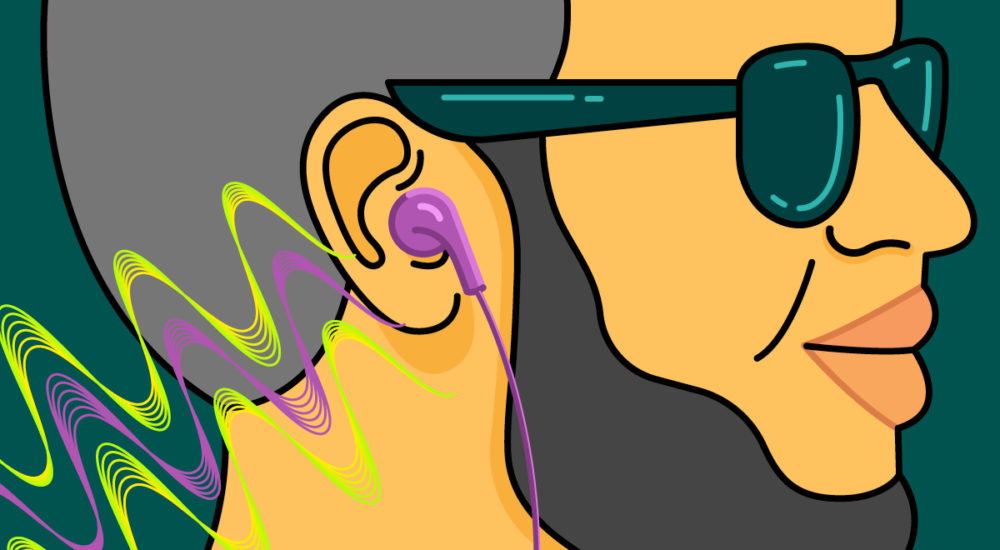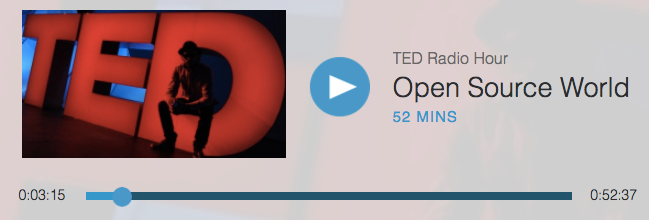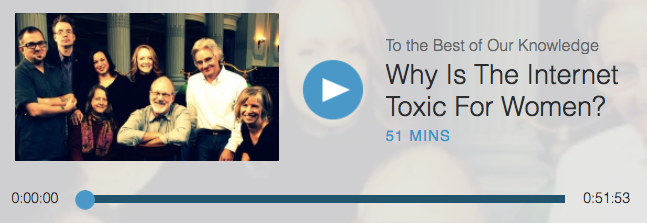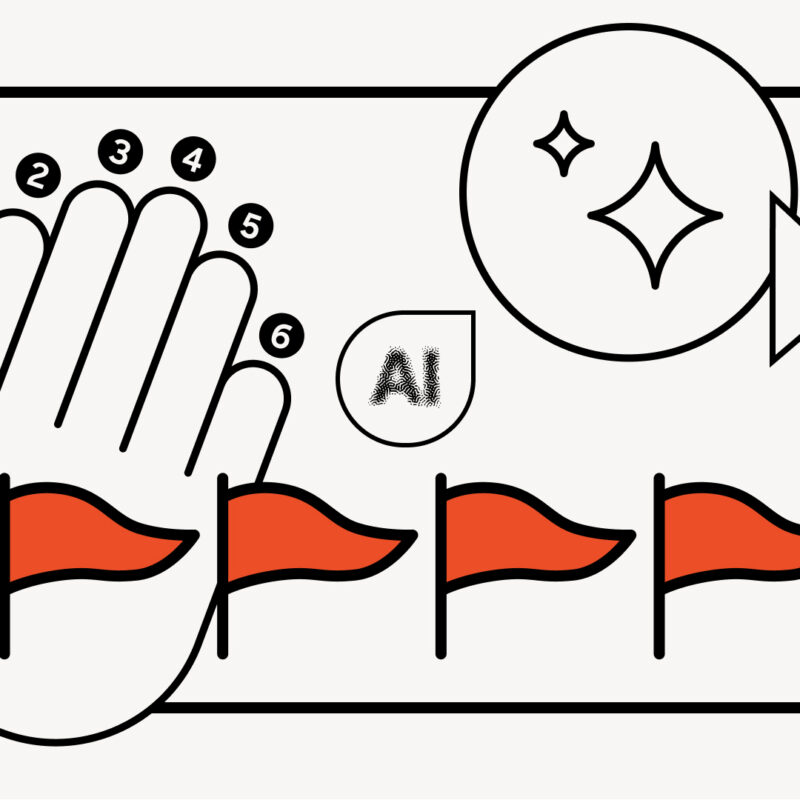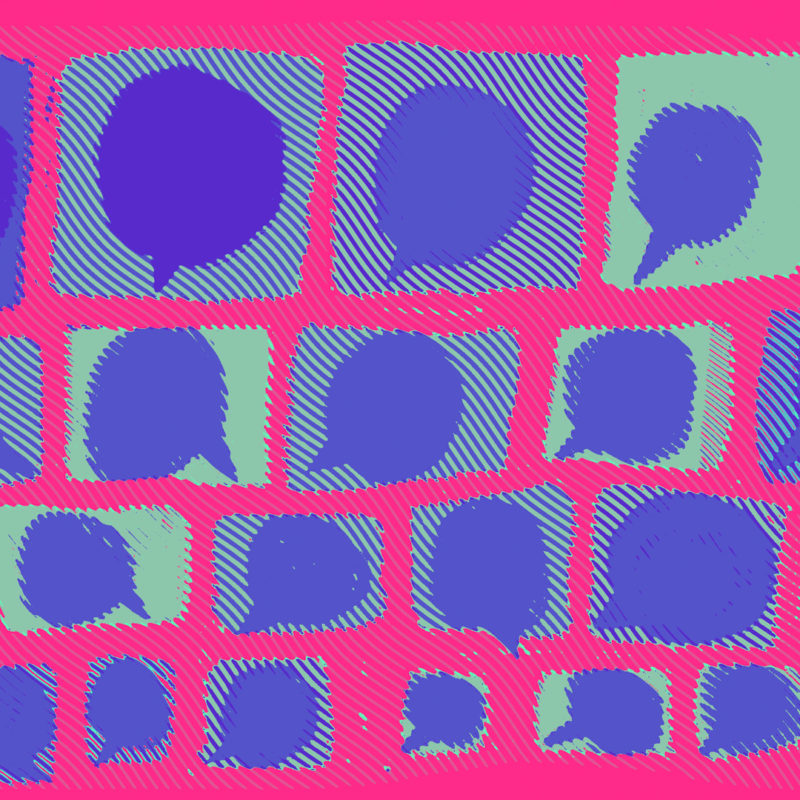The Internet hosts thousands of hours of podcasts, all ready for our on-demand listening pleasure. While podcasting might not save the world, it does contribute to a healthy, vibrant Internet. Anyone and everyone can make a show to express themselves, pursue ideas and teach others. Some shows do a remarkable job covering Internet Health issues like privacy, security, openness, inclusion and more. Here are eleven worth hearing, from heart-wrenching human stories to lofty academic conversations, all touching on the Internet’s past, present and future.
1. TED Radio Hour: Open Source World
Creating things freely and in the open sometimes leads to results you never thought possible.
Synopsis: The era of open source has led to countless innovations. When does it work and when is it chaos? In this episode, TED speakers explore how open source is changing how we build, collaborate and govern.
My review: This TED Radio Hour makes the case for why an open source world is a better world, and they do it in a beautiful, conversational way. I listened to this podcast on a Saturday morning in my kitchen, and texted the link to a friend with the comment, “So freaking inspiring!” Seriously, this podcast had me almost in tears of gratitude and inspiration. Good TED Talks can do that. Or maybe I’m just emotional. Either way, it’s good listening.
2. Note to Self: The Bookie, The Phone Booth, and The FBI
When privacy is invaded, it’s not all at once. It’s little by little by little. It’s changing our society and will have profound implications for who we are as a nation.
Synopsis: The fourth amendment doesn’t mention privacy once. But those 54 little words, written more than 200 years ago, are a crucial battleground in today’s fight over our digital rights. That one sentence is why the government can’t listen to your phone calls without a warrant. And it’s why they don’t need one to find out who you’re calling.
My review: I’ve listened to this episode several times. At around the 21-minute mark, when Laura Donohue, director of Georgetown’s Center on Privacy and Technology, eloquently summarizes why privacy matters and how the fourth amendment plays a critical role in defining who we are as a country, I was ready to take to the streets draped in an American flag to defend my constitutional rights. I also got hooked on Note to Self, which tackles the modern quandaries of Internet citizens in an approachable way.
3. FT Tech Tonic: Political Disruption and the Internet
You can donate your blood, but you can’t donate your data.
Synopsis: Helen Margetts, head of the Oxford Internet Institute, talks to the Financial Times’ Madhumita Murgia about fake news, echo chambers, big data and why we need more research to be able to combat the “pathologies” of the internet.
My review: As a parent to two young digital natives, I’m concerned about the positive and negative effects of the Internet on them, our society and our future. I didn’t know the Oxford Internet Institute existed, and I’m relieved that academics are studying the social science of the Internet. This podcast is a more academic (and British) conversation about how technology and the Internet can turn small political actions into mass mobilization. Margetts also examines the role of big data analytics in democracies. Good stuff from FT Tech Tonic.
4. This American Life: If you don’t have anything nice to say, SAY IT IN ALL CAPS
Let’s dive into the bile. Let’s dive Into the hate, and look around and see whatever we can understand. Let’s ask the dumbest questions, like “Why so mad?” And if you are so mad, why go to the trouble to tell strangers?
Synopsis: It’s safe to say whatever you want on the Internet; nobody will know it’s you. But that same anonymity makes it possible for people to say all the awful things that make the Internet such an annoying and sometimes frightening place.
My review: I was riveted by writer Lindy West’s story about confronting the man behind the worst trolling experience of her life. For an outspoken, self-described “fat” woman who writes about women’s issues, that’s saying a lot. In classic This American Life style, three more segments carry the theme onward, bringing Internet anger into a very human focus.
5. To the Best of Our Knowledge: Why is the Internet toxic for women?
The same ways we once trivialized domestic violence and sexual harassment in the workplace were the very same arguments that victims of cyber harassment are faced with.
Synopsis: Ask any woman who spends much time online and she’ll tell you – being a woman on the Internet means coping with abuse and harassment. In one study, nearly half of the women surveyed had been harassed online – and 76 percent of those under 30. As a society, why do we have to put up with this? And how do we fight back?
My review: The episode starts with an incessant buzzing, the sound your phone makes when you get a message. The dispassionate voiceover is indie game developer Zoë Quinn talking about how her phone blew up with messages at the start of Gamergate. To The Best of Our Knowledge’s hosts go on to talk with four more guests — strong, smart women — about the cost of harassment and misogyny. I didn’t come away with “the answer,” but I did come away thinking we can do better than this. Every voice that is silenced due to mistrust in the the online world comes at a cost to us all.
6 – 7. Reply All: The Russian Passenger + Beware All
Oh god–have I been pwned?
Synopsis: Somewhere in Russia, a man calls for a car. Somewhere in New York City, a stranger’s phone buzzes. Alex Blumberg’s Uber account gets hacked. PJ Vogt, Alex Goldman and Phia Bennin set out to solve the mystery.
My review: It’s almost impossible to pick a favorite Reply All episode to feature because they are all so good. In these episodes, the hosts embark on a journey to figure out out how Alex Blumberg’s Uber account got hacked. I identified with the awful, helpless feeling of trying to figure out how it happened and what to do about it. No spoilers, but makes sure to listen to both episodes.
8. Harvard Business Review: When Not to Trust the Algorithm
I wanted to tell the world, because I thought it was relatively invisible to most people, that we’d all drunk the Kool-Aid of big data and we trusted so math so much, so deeply, that it was blinding us to the real problem.
Synopsis: Cathy O’Neil, data scientist and blogger at mathbabe.org , co-host of the Slate Money podcast, and author of the new book Weapons of Math Destruction discusses how data can lead us astray—from HR to Wall Street.
My review: With “Big Data” being ever-present in our lives, gathering endless information about what we do, think and feel, the conversation about ethical use of data is not always front and center. Cathy O’Neill is changing that. She talks to HBR Ideacast about her time as Wall Street number cruncher during the financial crisis and her journey to best selling author. Math nerds unite!
9. Recode Decode: Internet Archive founder Brewster Kahle
If we allow those who control the present to control the past then they control the future. That’s George Orwell. We need to know what came before.
Synopsis: Journalist Kara Swisher hosts entrepreneur, activist and founder of the Internet Archive (AKA, the Internet Wayback Machine) Brewster Kahle to discuss the growth of the open internet and the importance of having a history of the internet available to everyone.
My review: This Recode Decode conversation is not only about the history of the Internet, it’s about the importance of preserving the web as history. With the web being a decentralized platform by design, saving its content it is no easy feat. Enter social media’s walled gardens and the job is even trickier. I’m grateful people like Kahle are dedicated to keeping the Internet open and available to everyone. I also picked up this nice tidbit: there’s an Internet Hall of Fame, and Kahle is in it.
10. Freakonomics Radio: Is the Internet being ruined?
The Internet has the potential to create a more engaged and creative society. The risk is that gatekeepers and profiteers and others will turn it into a more passive ecosystem, less interactive than it could be — more like watching television.
Synopsis: It’s a remarkable ecosystem that allows each of us to exercise control over our lives. But how much control do we truly have? How many of our decisions are really being made by Google and Facebook and Apple? And, perhaps most importantly: is the Internet’s true potential being squandered?
My review: Mozilla believes the Internet is our largest global resource, a living ecosystem that billions of people depend on for knowledge, livelihood, self-expression and love. So is the Internet being ruined? Freakonomics’ Stephen Drubner doesn’t draw a conclusion, but this podcast does serve to raise the alarm.
11. Ctrl-Walt-Delete: Can Walt Mossberg rescue the Internet?
Every few years, the feds and the courts change direction or fail to answer important questions. And every day, the internet becomes more of a platform for lousy ads, for increasing the power of a few rich companies, and for intrusive tracking. It’s too important to leave unprotected.
Synopsis: Walt Mossberg proposes a plan to change how the internet is managed, regulated, and operated. He suggests that the US government should preserve the internet in a similar fashion to how natural resources are protected. He discusses what we need to change, and possible solutions for the problems politicians and major corporations are debatably only blocking.
My review: I was pretty taken with this conversation. Walt Mossberg is a respected, long-time journalist who has covered technology for decades. The fact that he’s believes the Internet is a threatened resource worthy of our protection encourages me. We at Mozilla believe that a healthy Internet — one that is private, inclusive, collaborative and open — is crucial for the world to thrive. As Mossberg notes, there is an infinite number of things that depend on it. So I leave you with this thought: If we don’t protect the Internet, who will?
